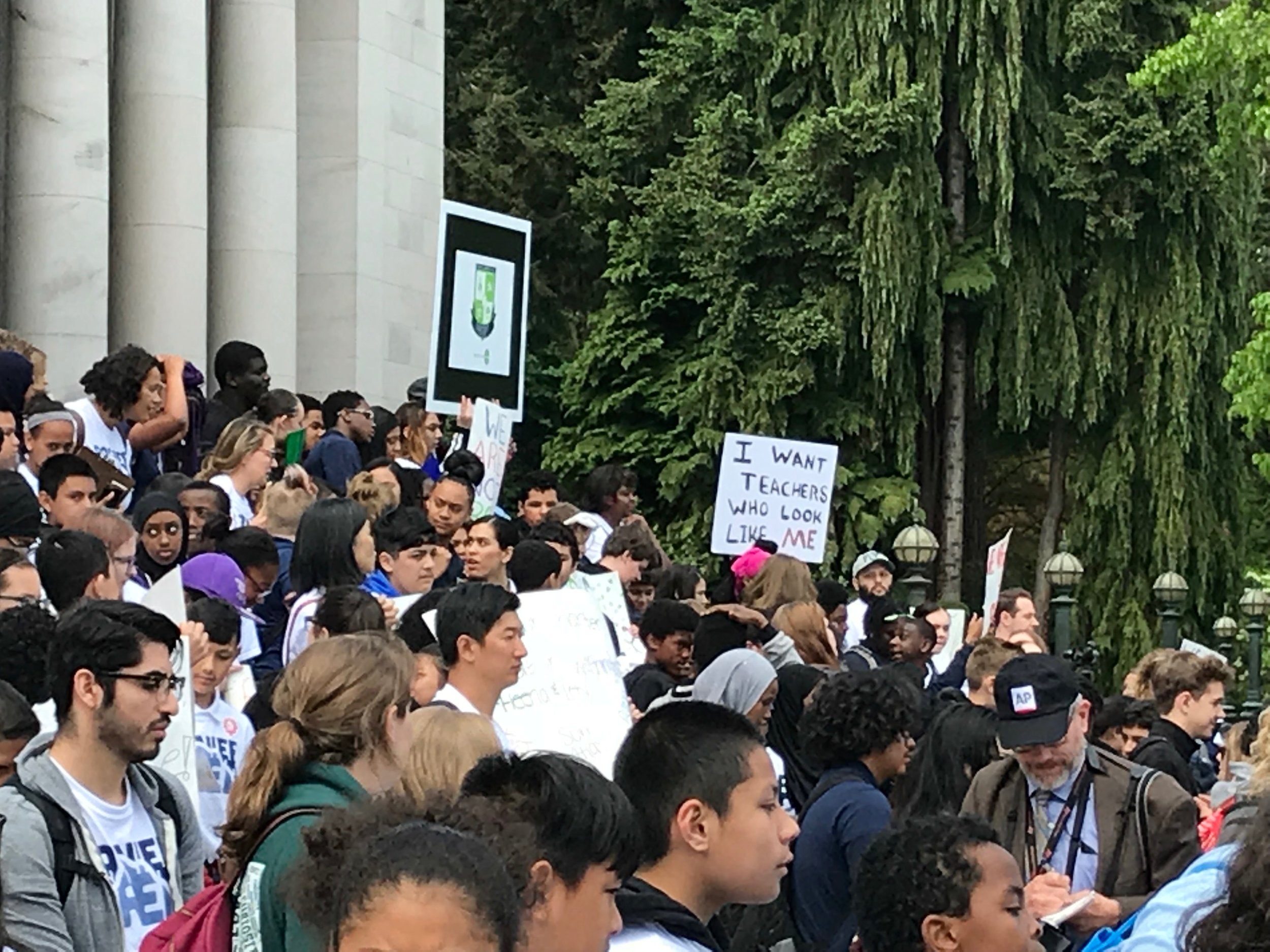As a public school parent, charter schools are a matter of principle
/I’ve been writing a lot about charter schools and school choice lately. It’s time to clear a few things up before we take a break from beating this particular dead horse.
First off, none of my kids go to a charter school. I have a child who continues to go to our local public elementary school, another in preschool, and a baby. In many ways, our local school has been wonderful, and in many ways it has been a real challenge. We’ve had four principals in our five years at Emerson Elementary, for instance, and almost complete teacher turnover in that time. But our son is doing well, has a lot of outside support and privilege, and for the time being, we've been comfortable keeping him there. He’s seen and supported and enjoying his place in a diverse little community.
So, as a public school parent, charter schools are a matter of principle. It's about offering parents a choice. My neighbors with privilege have generally found a way to get their kids into a different, “better” school than Emerson. Our neighbors without as much privilege generally haven't. That's not right.
Of course, with only 10 charter schools open in Washington State last school year, serving only 2400 current students, charters remain mostly a principle in reality as well. They are a slowly growing option for more and more students statewide, and they represent the principle of school choice, and the possibility of doing something radically different than the traditional public school system will allow.
This is important because we have been publicly acknowledging and discussing racialized opportunity gaps in Seattle’s schools since the 1950s. They are bigger than ever today. Generations of perpetuated gaps, which are a gentle way of talking about racism and discrimination, show us unequivocally that more of the same will be unacceptable. We need something radically different.
As a result, I don’t believe that putting more money into the discriminatory SYSTEM of schools that created and perpetuate these gaps will finally, suddenly solve our problems of racism, classism and other isms playing out in our schools. I don't believe it's been a money shortage that created these problems, so I don't think money will be the solution.
My mother has been teaching Head Start preschool and public elementary school for about 40 years now. I'm aware of the funding shortages in our schools, and how some of that burden is borne by the teachers. I also know intimately how many teachers are in the classroom doing great things, fighting daily for kids and for equity. Some of my best friends and dearest loved ones are in classrooms doing just that.
It hurts me, then, to see them thwarted by a system that has been designed to be inequitable. The most problematic thing happening in education today, to me, is that we know about these awful opportunity gaps and continue to demand that parents send their kids of color to school without the problems that caused those gaps being addressed.
That seems much more like something to actively oppose than the creation of 10 charter schools which are, by the design of Washington's charter law, specifically required to serve those students most affected by the gaps.
(By the by, the data shows that charters are serving these very students at greater rates than the traditional districts.)
I support the principle of school choice, which at the moment is represented by a handful of charter schools, because it allows parents to choose out of the inequitable public school SYSTEM without choosing out of the principle of public education.







